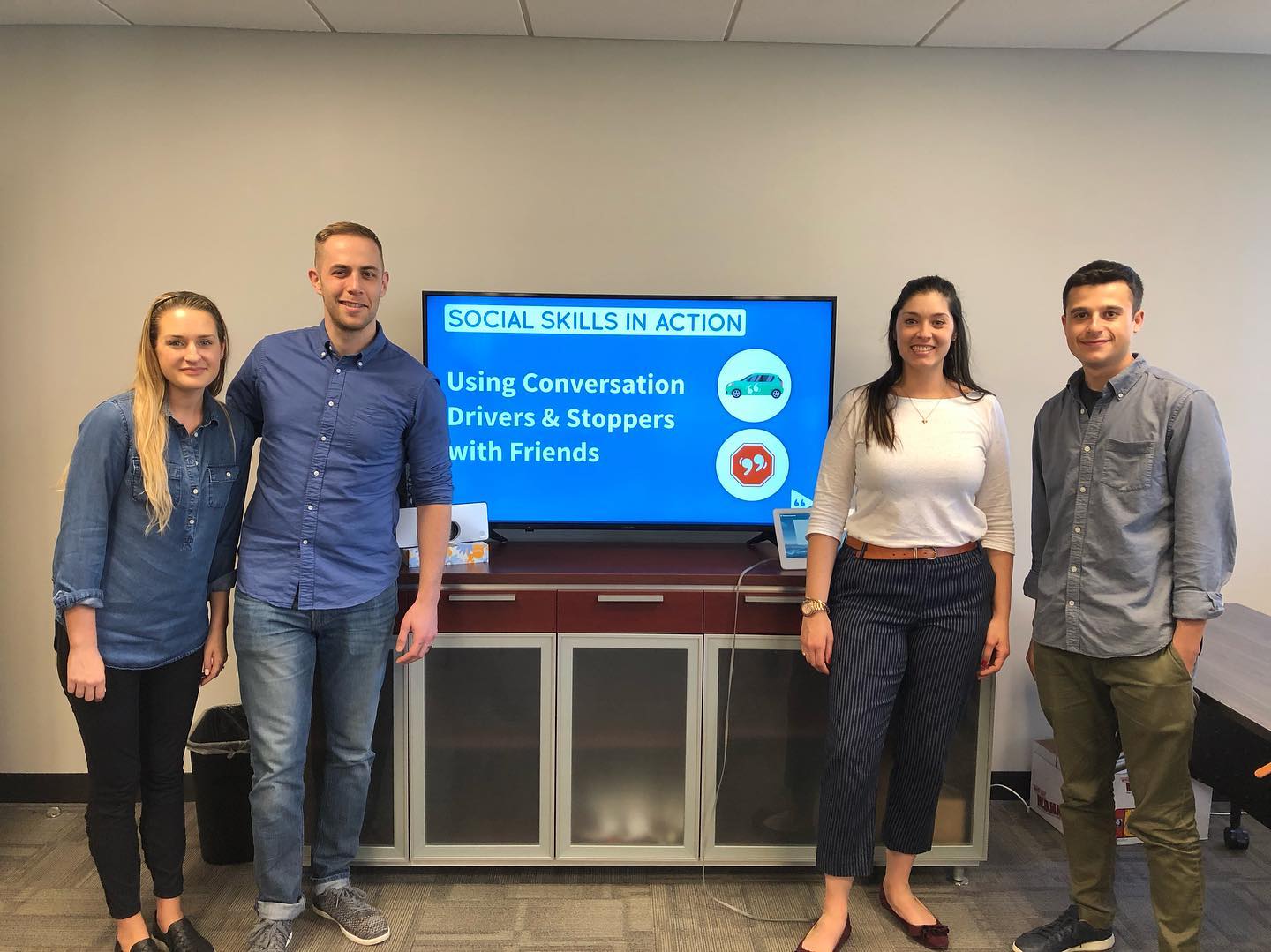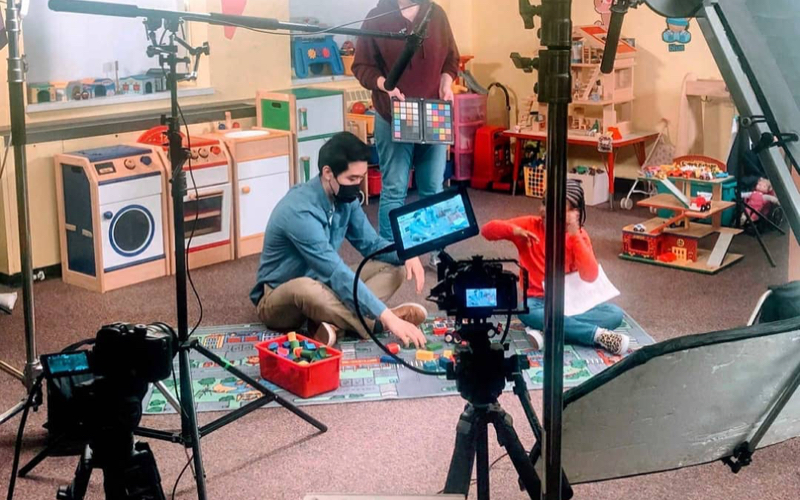Everyday Speech is a digital social-emotional learning platform geared mainly toward public schools in the United States. The company’s interactive platform includes a library of videos, games, and digital activities that help students gain the foundational skills they need to become functioning, happy adults in modern society. Founded by a husband-and-wife team in 2012, Everyday Speech has grown rapidly over the past several years.
The Problem

When Brittany and Cal Brunell founded Everyday Speech, it was easy for the pair to keep track of the documents they’d created. Things became slightly more challenging as they added team members over the subsequent years, and by the time they had 50 employees, their existing knowledge management system—a collection of Google Docs—was no longer working.
“It was very siloed,” says Cal. “No one knew where anything was. Google Drive is sort of like everyone’s desk, and there’s just stuff everywhere.” The team had trouble finding final, approved versions of documents amid multiple working versions, and the lack of an overarching organizational structure made managing and finding files difficult.
The Solution
The team needed a way to access company documentation—everything from founder letters to new hire onboarding, development specs, tutorials, and handbook documentation—with less friction. What’s more, co-founder Cal wanted to find tool that would allow him to carve out a permanent place for his own internal missives—about values, approaches to solving problems, and more—to live.
Everyday Speech partnered with Tettra, and Cal easily organized a new internal knowledge management system that categorized and codified the company’s various document types.
“It was very easy to set up. I did it by myself and it took me a half hour or so.”
Now, referencing Tettra has become a natural part of Everyday Speech employees’ workflows. Tettra’s Slack integration allows the team to turn questions into Tettra page suggestions simply, and the search feature makes finding answers and relevant documents easy.
“People are actually excited to write documentation,” says Cal. “I think it makes you feel good when you have a solid answer to a question, and you don’t have to re-answer it every time. People really value that Tettra is the first place they look before they ask a question rather than having to figure it out on their own.”
The customer support team is a particular champion of Tettra, which has simplified their workflow with easier access to customer-facing information. “They really enjoy creating articles for themselves, too,” says Cal. “Tettra serves as an internal knowledge base for them.”
The Results
Using Tettra to organize and centralize company information and documentation has generated multiple benefits for Everyday Speech across the employee lifecycle.
“With a lot of startups, the onboarding piece is really difficult,” explains Cal. “At the beginning, everybody owns a piece of the company, and information lives in everyone’s collective minds. Since implementing Tettra, we’ve gotten really good feedback from recent hires that the onboarding is super helpful and clear.” By centralizing information in Tettra, Everyday Speech helps employees understand the company more easily—from its overarching values to their specific jobs and daily work.

Using Tettra has also resulted in material time-savings for new hires and veterans alike. It’s now become part of the company’s culture to reference Tettra before asking a question. “I think sometimes it’s hard to see what questions don’t get asked, because they’ve been answered in Tettra,” says Cal. “I will say: we have far fewer questions that just get thrown out in the Slack channel than we did when we were half the size we are now.”
Cal wholeheartedly recommends Tettra to other organizations—particularly those that have begun to scale. “Coordinating and knowledge-sharing across an organization offers the ability to not be stuck in the mud,” says Cal. “I know we’ve gotten a ton of use out of [Tettra], people on our team use it daily, and we use it for almost anything you can think of that needs to be shared across the organization. We’re super happy with it, and we use it more and more all the time.”

